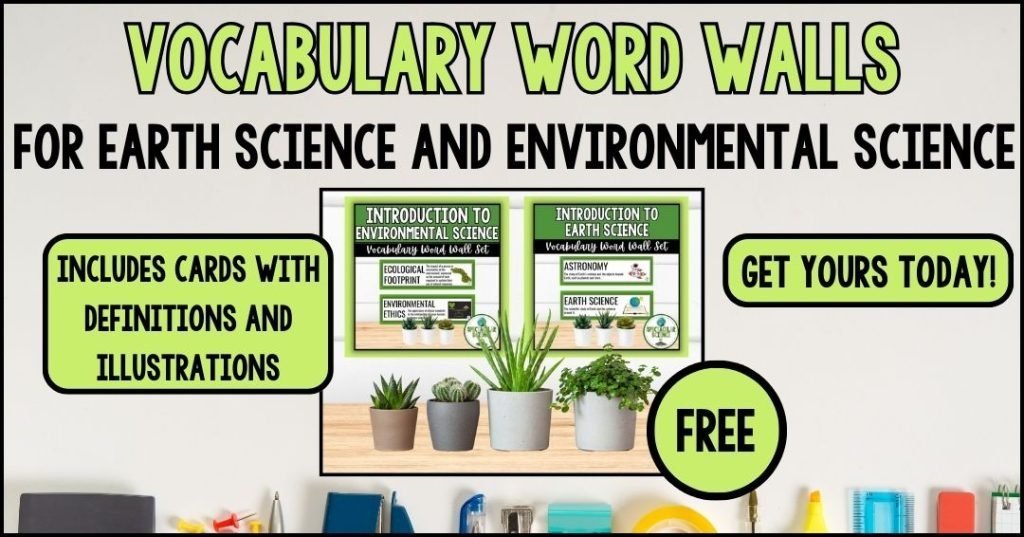
How to Develop Science Concepts Using Word Walls
Vocabulary word wall cards are a fantastic tool to enrich any classroom experience for students. They can serve as both an educational resource and a visual stimulus, reinforcing key concepts and terms that are essential for understanding complex scientific ideas. Let’s explore various strategies for effectively using word walls to develop science concepts, enhancing both teaching and learning experiences.
Why use word walls?
- They provide a permanent model for high frequency words.
- They help students see patterns and relationships in words, thus building phonics and spelling skills.
- They provide reference support for students during reading and writing activities.
- When paired with images and definitions, they enhance recall abilities.
1. Gradual Introduction of Vocabulary Cards
Introducing vocabulary cards a few at a time allows students to absorb and understand new terms without feeling overwhelmed. This method helps in building a strong foundation of scientific vocabulary progressively. Here’s how you can implement this strategy:
- Daily/Weekly Words: Introduce a set number of new words each day or week. This creates a routine and ensures consistent learning.
- Contextual Learning: Pair new words with relevant experiments or lessons. For example, during a unit on ecosystems, introduce terms like “habitat,” “biodiversity,” and “photosynthesis.”
- Interactive Activities: Engage students with activities such as matching games, word searches, or flashcard reviews to reinforce the new vocabulary.
2. Thematic Word Walls
Creating thematic word walls can help students connect words to broader scientific concepts and units. Organize the word wall by topics such as Earth Science, Biology, Chemistry, or Physics. Here’s how to make the most of thematic word walls:
- Color Coding: Use different colors for different themes or units to visually distinguish between them.
- Visual Aids: Include images, diagrams, or symbols next to words to provide visual context and aid memory retention.
- Student Involvement: Encourage students to contribute to the word wall by suggesting new words or creating illustrations for the terms.
3. Word Walls as Decorative Borders
Using word wall cards as a decorative border around the perimeter of the classroom can create a stimulating and immersive learning environment. This approach has several benefits:
- Constant Exposure: Students are constantly exposed to the words, which can aid in passive learning and retention.
- Classroom Aesthetics: A well-designed word wall can make the classroom more inviting and visually appealing.
- Spatial Learning: Placing words around the room can help students associate terms with specific locations, enhancing recall.
4. Interactive Word Walls
Interactive word walls transform static displays into dynamic learning tools. Here are some ideas to make your word walls interactive:
- Moveable Cards: Use Velcro or magnets to make word cards moveable. This allows students to physically manipulate the words, which can enhance engagement and understanding.
- Question and Answer Sections: Create sections on the word wall where students can post questions about certain words or concepts, and others can post answers or explanations.
- Word Wall Games: Incorporate games like “Word Wall Bingo” or “Scavenger Hunts” where students search for and use words from the wall in various activities.
5. Technology Integration
Enhance your word walls with technology to create a blended learning experience. Here’s how:
- Digital Word Walls: Create a digital version of your word wall using apps or software that students can access from home. This ensures that learning continues beyond the classroom.
- QR Codes: Attach QR codes to word cards that link to additional resources, such as videos, articles, or interactive activities.
- Augmented Reality (AR): Use AR apps to bring the word wall to life. Students can use devices to scan the word cards and view related 3D models or animations.
Developing science concepts using word walls is an effective and versatile strategy that can cater to diverse learning styles. By gradually introducing vocabulary, organizing thematic walls, using words as decorative borders, making walls interactive, and integrating technology, teachers can create a rich and engaging learning environment. These methods not only enhance students’ understanding of scientific terms but also foster a love for learning and exploration.
By incorporating these strategies, you can transform your classroom into a dynamic space where science comes alive, and vocabulary learning becomes an exciting and integral part of the educational journey.
-
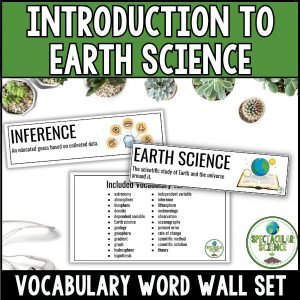
Introduction to Earth Science Vocabulary Word Wall Cards
$5.00 -
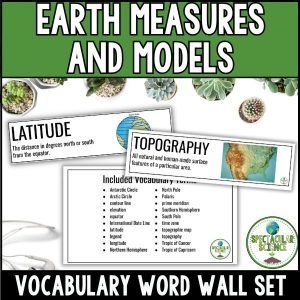
Earth Measures and Models Vocabulary Word Wall Cards
$5.00 -
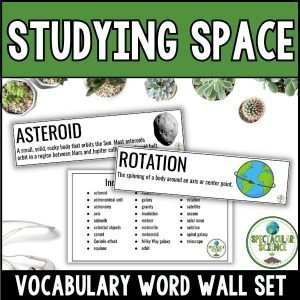
Studying Space Vocabulary Word Wall Cards
$5.00 -
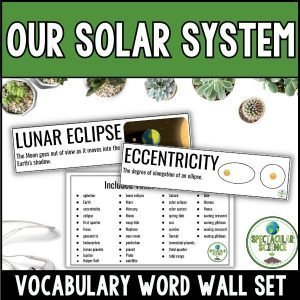
Solar System Vocabulary Word Wall Cards
$6.00 -
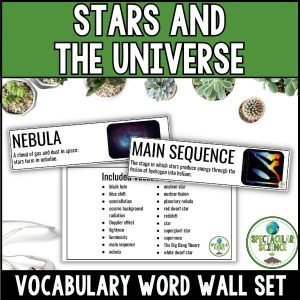
Stars and the Universe Vocabulary Word Wall Cards
$5.00 -
Sale!
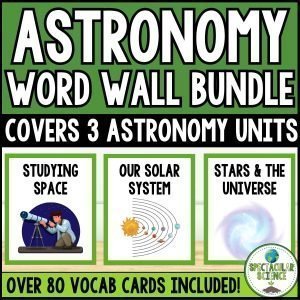
Astronomy Vocabulary Word Wall Cards Complete Bundle
$16.00Original price was: $16.00.$14.00Current price is: $14.00. -
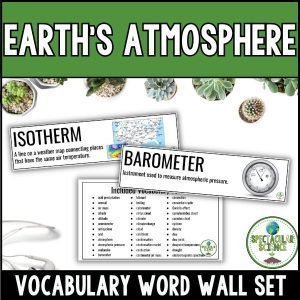
Atmosphere Vocabulary Word Wall Cards
$12.00 -
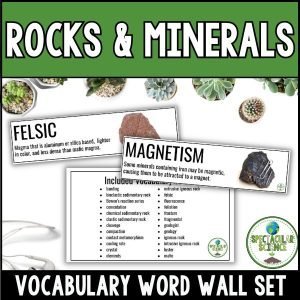
Rocks & Minerals Vocabulary Word Wall Cards
$7.00







